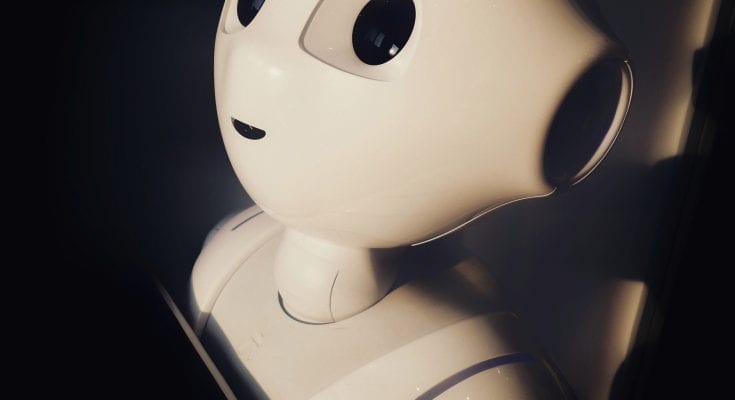Without focusing on the unique field of robotics, Artificial Intelligence (AI) is now an essential component of business strategy: today with algorithms, tomorrow with autonomous AI training in Bangalore capable of making decisions that are more complex. As a result, the issue of artificial intelligence, automation and the future management of talent is a priority for leaders around the world. All th heavy hitters like Google, Twitter, Facebook, Parler, Telegram, and others are all over AI. Even Uber uses it.
Among the many sources of concern that they identify for 2018, we find:
- geopolitical instability
- talent shortage
- the speed of technological change
Behind the identification of these last two risks lies, first of all, a question of the survival of the company:
A questioning that raises technical, organizational but above all human issues. Half of the European leaders find it rather difficult or even very difficult to recruit digital talent, and more than 50% of them are rethinking the organization of their human resources functions. Half of the European leaders find it rather difficult or even very difficult to recruit digital talent, and more than 50% of them are rethinking the organization of their human resources functions. The interweaving of people and technology is also reflected in the general public: 37% of people questioned say they are worried about the effects of automation on their workstation. In the short and medium-term, developments in artificial intelligence will be more likely to transform certain tasks than entire professions. This upheaval requires rethinking actions, gestures … but also the role of people. It’s a major change just like Bitcoin and Tezos change the way folks look at finance.
For example, in the medium term, a lawyer could be assisted by artificial assistance which will identify beforehand the chances of success of legal action, or which will carry out the research of case law in its place, which will transform its way of approaching each of its missions. Finally, we must not neglect the creation of new professions and skills brought about by new technologies. Whatever the magnitude, the future recomposition of existing tasks or those still to be invented requires rethinking the relationship of each employee with all of his interlocutors, customers and colleagues.
Rethinking training and learning
Technology has changed the very concept of learning, which is changing dramatically. From a planned training logic, where participants participate in a session in a room, to multiple learning logics, via management, tutors, or even self-learning via ai Training in Bangalore, training takes place is multiplied. She is now thinking about herself on several levels and a continuous basis. The key idea of this new ai Training in Bangalore is to make employees fully involved in their development.
A new challenge that requires less planning and monitoring the follow-up of training, and more to distil the right information and provide the right opportunities, all in an environment where the urgency of projects and the variety of modes of interaction can lead precisely to saturation of information. In such a context, the role of managers is of capital importance. This requires changing their posture to devote part of their time to the transfer of knowledge, to supporting their employees.
Anticipate the emergence of new professions
While automation will undeniably reconfigure the daily lives of many people in the medium and long term, artificial intelligence and technologies in a broader way will also be at the origin of new ways of interacting, and even the development of new professions. However, because of the speed of the transformations at work in companies, and the proliferation of new management methods, structures, organizations, anticipating this question is essential. Some governments are already addressing the issue of the future impact of technologies on their economic and political ecosystem, such as Sweden, which has set up a Ministry of the Future to reflect on tomorrow’s public action. Within companies too, this reflection must be concretely embodied in practical working groups, to support innovation and talent.
FAQ
How can the legal profession use Artificial Intelligence?
For example, in the medium term, a lawyer could be assisted by artificial assistance which will identify beforehand the chances of success of legal action, or which will carry out the research of case law in its place, which will transform its way of approaching each of its missions.
Additional Resources:



